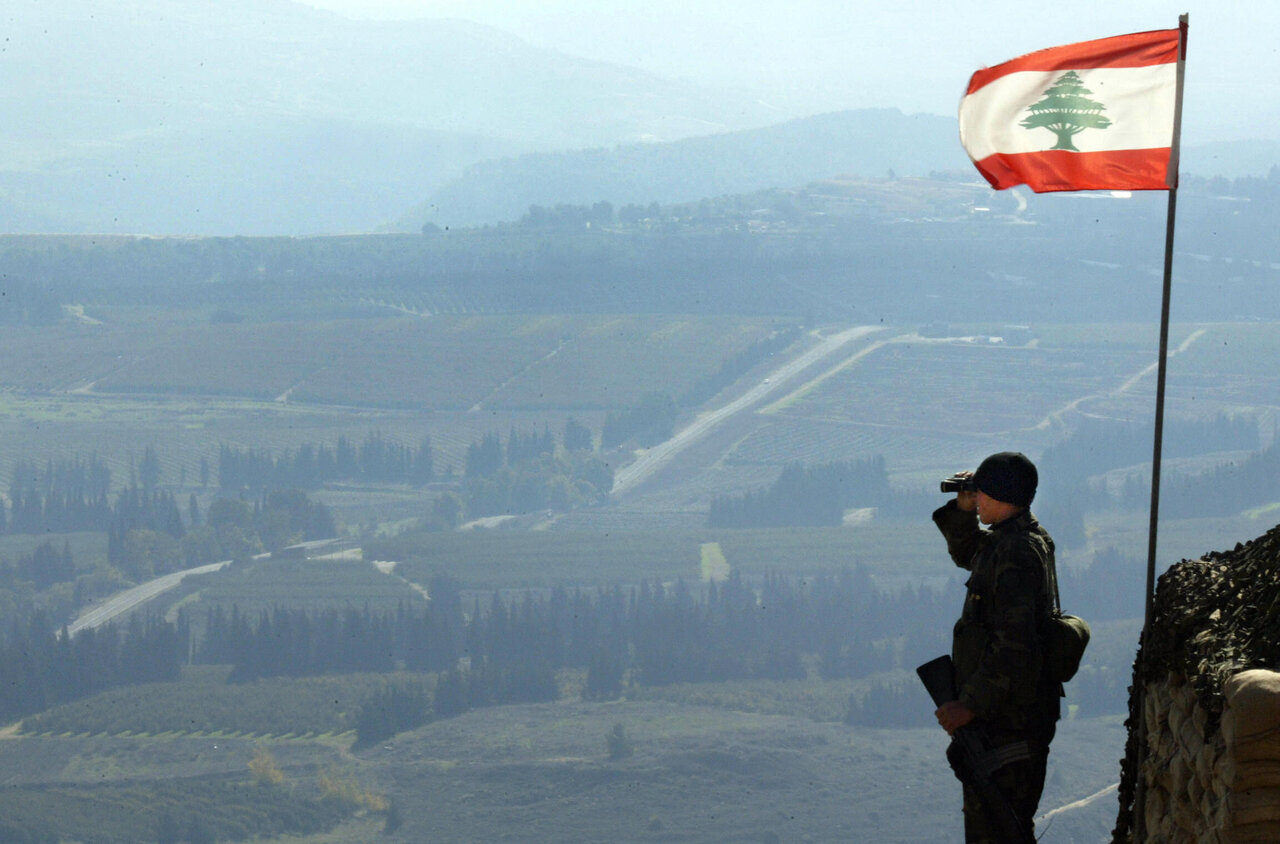Southern Lebanon on brink of heated tension

SOUTH LEBANON — The violent Israeli raids on Lebanon on the eve of Eid al-Adha provoked the Lebanese Army Command to issue a strongly worded statement, including an unprecedented warning to freeze its cooperation with the Ceasefire Supervision Committee.
It is worth noting that the Army had inspected the targeted area on the morning of the attack, refuting Israeli allegations of suspicious Hezbollah activity.
This confirms that the Israeli enemy intended not only to escalate pressure regarding the disarmament of the Resistance, but also specifically to convey to Washington its dissatisfaction with the performance of the Lebanese Army commander and even push him to expedite the process of disarming Hezbollah.
The Army Command warned in its striking statement that “the persistence of Israeli forces in violating the Cessation of Hostilities Agreement and their refusal to cooperate with the Cessation of Hostilities Supervision Committee is nothing but a weakening of its role.”
While the Lebanese army lacks deterrent capabilities, it is urging those concerned to assume their responsibilities. In addition, it is sending a deliberate message that it will not accept any attempt to impose a fait accompli on it.
This sharp tone reflects the extent of the discontent, as it is intended to be an inactive “justice police” operating at the behest of the enemy, along with the supervisory committee led by American General Jasper Jeffers.
Meanwhile, Hezbollah condemned the Israeli aggression on Shebaa Farms, which led to the martyrdom of a citizen and his son, a Lebanese soldier, and the serious injury of another son.
Hezbollah MP Ali Fayyad said, “This criminal attack against unarmed civilians exposes the aggressive nature of this entity, which needs no pretext to justify its crimes.”
Fayyad, from the Loyalty to the Resistance bloc, called on the government to take a “firm stance, both locally and internationally, against the Cessation of Hostilities Supervision Committee, whose role is futile, and to continue cooperating with it.”
Fayyad says this can be done by “filing an urgent complaint to the UN Security Council; summoning the ambassadors of the guarantor states of the agreement to pressure this treacherous enemy; and putting an end to his continued aggression supported by blatant American cover.”
In parallel, Fayyad stressed in his statement “the necessity of calmly, wisely, and responsibly addressing any friction or tension that occurs between the people of the south and UNIFIL forces, who enter villages, towns, and private property without coordination or the presence of the Lebanese Army.”
The Hezbollah MP pointed out that the southerners “do not see any trace of UNIFIL’s move in addressing the continued occupation of Lebanese territory by the Israeli enemy, its incursions, and its persistence in assassinations and hostile acts in the international forces’ area of ??operations.”
Fayyad concluded, “Despite this, we look forward to a positive relationship between the people and the international forces, as the relationship is supposed to be built on trust, reassurance, and security, not on suspicion, misgivings, and a sense of bias.”
The popular base of the Resistance considers UNIFIL a threat that has been deployed to serve the Israeli enemy since the 1970s.
Today, more than ever, the Israeli enemy is exploiting the pretext of its need to reassure the settlers in northern occupied Palestine and to establish a buffer zone by pushing UNIFIL to withdraw from where it is currently stationed in the south. At the same time, it is exhorting the Lebanese government to take decisive measures to curb Hezbollah.
This Israeli expansionist endeavor enjoys the support of Washington, which may exercise its veto in the Security Council against renewing UNIFIL’s mandate, in addition to the Trump administration’s efforts to reduce its expenditures worldwide.
Therefore, Lebanon may face two options, not a third: either the issue of disarming the Resistance movement is resolved, or it will fall into the trap of a security vacuum following the withdrawal of UNIFIL.
In either case, unfortunately, the consequences for Lebanon will be dire, raising fears of a rapid collapse of the ceasefire agreement and a return to war.
UNIFIL’s withdrawal will be evidence of President Aoun’s failure to fulfill his commitments, according to the West and Persian Gulf Arab monarchies. Accordingly, it will result in the loss of any international support, deepening institutional paralysis in a country already suffering from an unprecedented economic collapse (n.b. the cost of rebuilding what has been destroyed in the ongoing U.S.-led Israeli aggression, which is estimated at approximately $4 billion). Jean-Yves Le Drian, the French envoy to Beirut, received President Aoun’s thanks for France’s role in securing the renewal of UNIFIL’s mandate, “given the role it plays in cooperation with the Lebanese Army.”
“The presence of UNIFIL has become a regional need, not just a Lebanese one,” Aoun emphasized, commending “the efforts made by President Macron to convene the international conference to assist Lebanon next fall.”
Parliament Speaker Nabih Berri, for his part, affirmed “his commitment to the French effort to support Lebanon in confronting the conspiracy being hatched against UNIFIL.”
Leave a Comment